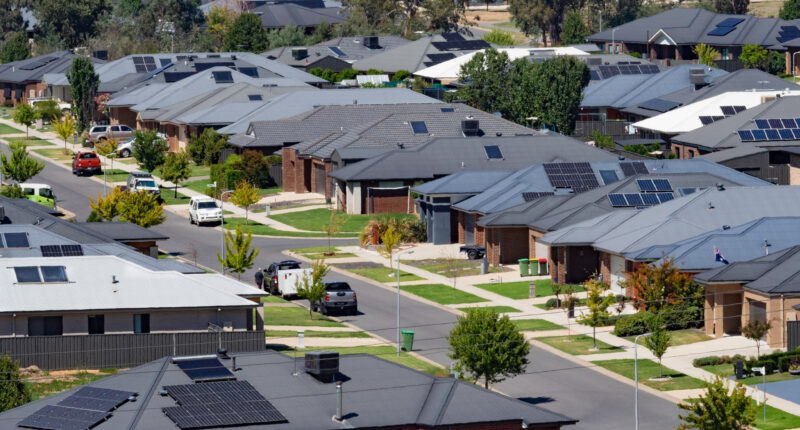HOMEOWNERS feel handcuffed to houses they no longer want because of sky-high HOA fees – and they’re only getting more expensive.
A total of 77 million Americans now live under the control of homeowners associations, which charge up to $2,000 a month.



In Yonkers, New York, Patrick Luzzi, 64, has spent nearly two years searching for a new home, he told Business Insider.
He is looking to downsize to a condo as his current house where he’s spent 60 years has stairs that are becoming harder to manage as he ages.
He wanted to move to a complex in Somers, about 40 minutes from his home, but couldn’t afford HOA fees ranging from $1,800 to $2,000 a month.
“HOA fees won’t go down in the future, they’ll go up,” he told the publication.
That’s just one example of how HOA costs are making it difficult for older homeowners to downsize.
The average HOA fee has increased by 42% since 2019, according to Business Insider.
In 2023, the average HOA fee in the US was $243 per month, up from $170 in 2019.
This is on top of already rising home prices, creating a perfect storm for those trying to find affordable housing.
Susan Hopkins, a retired teacher from Fillmore, California, expressed her observation that most new constructions in the area are large McMansions. She highlighted the trend of such expansive homes being built in the neighborhood.
She’s looking for a place without stairs after having her hip replaced and her husband struggles with chronic pain, too.
Like Luzzi, she’s searched for a more accessible home and has been discouraged by HOA fees.
The fees are often unpredictable, rising every year and adding to the financial strain homeowners are already under.
They cover services like trash removal, landscaping, and even luxury amenities like gyms and pools – but not everyone wants those perks.
“It’s not just the size of the homes, but the other expenses that go with it,” Hopkins said.
“I can live without a clubhouse or a swimming pool or a golf course.”
Across the country, the number of homes governed by HOAs is skyrocketing.
In 1970, just 2 million people lived in homes under HOA governance.
Today, that figure has grown to nearly 77 million.
And in 2023, 81% of newly built single-family homes were part of an HOA.
HOA crackdowns in the US
States across the country are working to restrict the power of HOAs.
- In Minnesota, lawmakers introduced a bill that would require HOA boards to create a schedule of fines and fees and distribute it to homeowners; ensure homeowners can contest an HOA fine; provide reasonable time to correct rule violations; and outlaw the practice of charging homeowners for asking questions.
- In Arizona, lawmakers are cracking down on HOA budgets. Under a newly proposed law, HOA boards would have strict guidelines for how they approve expenses.
- In Florida, a bill was passed that restricts the amount of control HOAs have over tenants’ property. It also stops HOAs from fining homeowners for leaving trash cans out and holiday lights up.
- In Atlanta, bipartisan bills were introduced to reign in overly aggressive HOAs to protect homeowners.
- In California, a new bill requires HOA elections to be monitored and the board to comply with certain homeowner requests.
- In Colorado, new HOA rules require greater transparency between HOA board members and tenants.
- And the Federal Fair Housing Act sets housing standards for all homeowners, tenants, and landlords.
For Luzzi, who’s looking at moving out of New York to Delaware, the fees aren’t the only obstacle.
He’s worried he will miss his friends and doctors in New York.
Hopkins, meanwhile, is considering moving to Nevada to be closer to her family.
“There’s so many things to consider that we’re just kind of stymied,” she said.
They’re not alone in feeling trapped inside their own homes.
Many homeowners who purchased their homes with low-interest mortgages are now facing a challenging situation. They feel stuck or constrained by their housing situation, often referred to as “golden handcuffs,” as relocating would result in a significant increase in their mortgage payments, sometimes doubling or even tripling them.

















